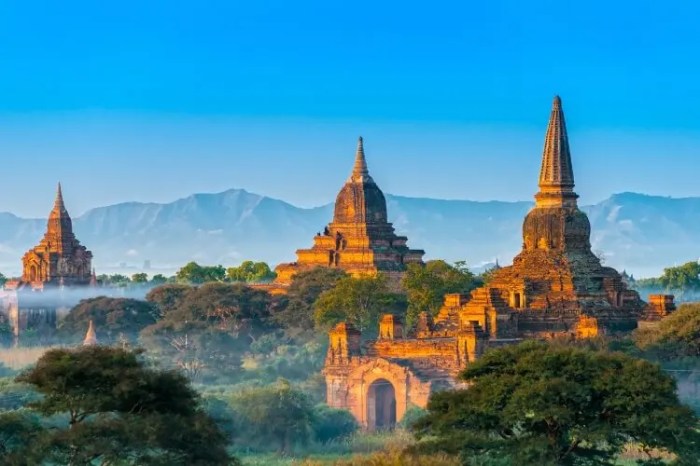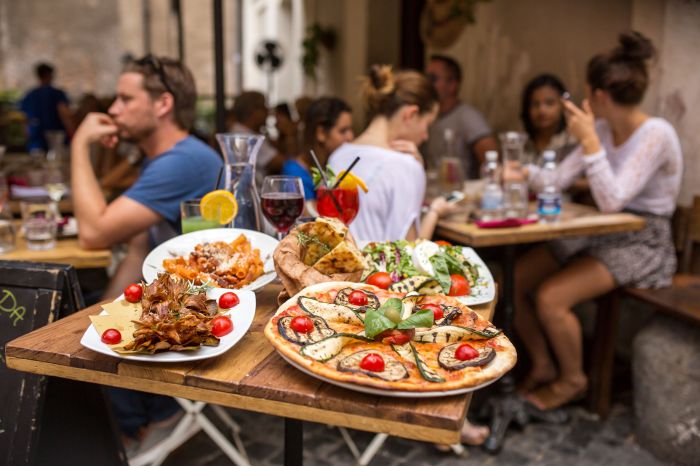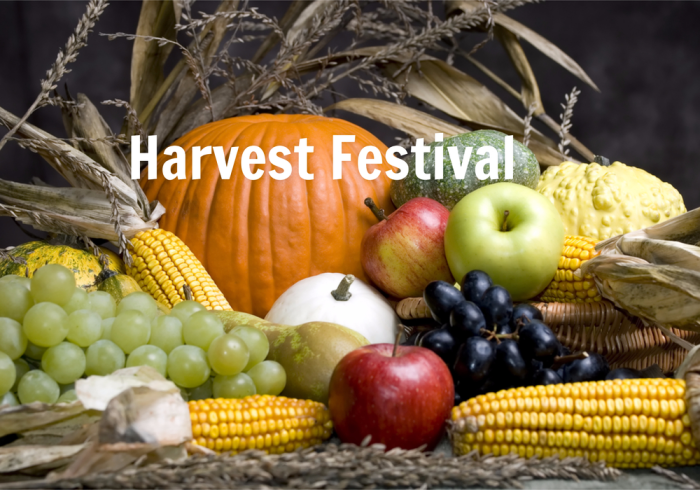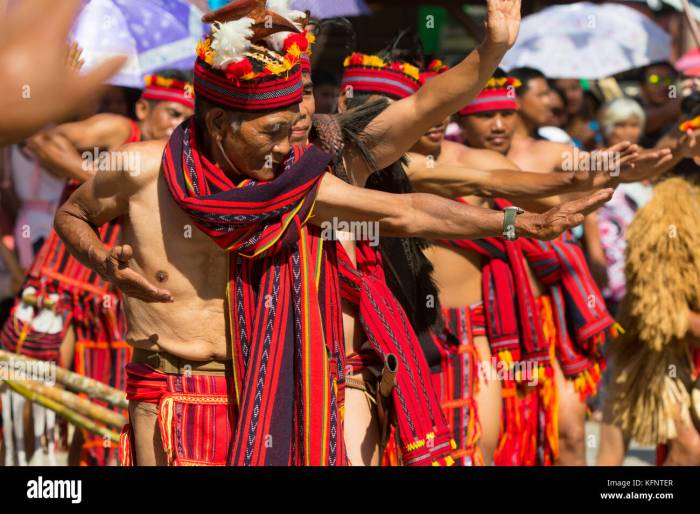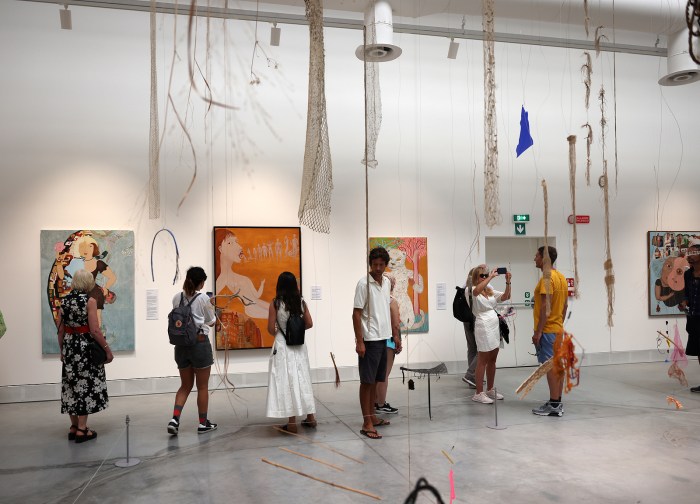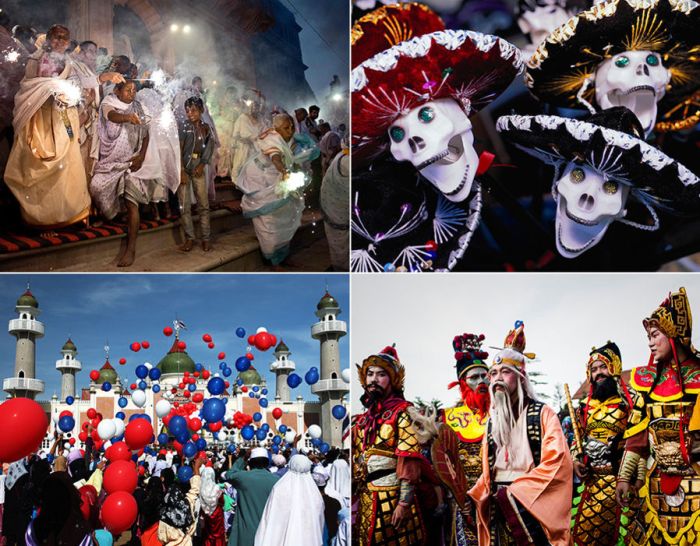
Top Religious Festivals Around the World offer a captivating glimpse into the diverse spiritual and cultural practices of societies across the globe. These celebrations, often steeped in centuries of tradition, provide vibrant expressions of faith, community, and shared heritage. This article explores a selection of these remarkable festivals, examining their unique rituals, historical contexts, and the ways they continue to shape modern life, from the dazzling lights of Diwali to the joyous revelry of Carnival.
From the ancient traditions of Asia to the modern celebrations of the Americas and the rich cultural heritage of Africa, we will delve into the significance of these events, highlighting their key characteristics and the experiences they offer. We’ll examine both the religious aspects and the cultural impact, offering a comprehensive overview of these globally significant events. The journey will encompass both well-known festivals and lesser-known celebrations, providing a diverse and engaging exploration of religious traditions worldwide.
Festivals in Asia
Asia, a continent of immense diversity, is home to a vibrant tapestry of religious festivals, each reflecting unique cultural traditions and spiritual beliefs. These celebrations, often deeply interwoven with mythology and history, provide a glimpse into the rich heritage of Asian societies. This section will explore some of the most significant festivals, focusing on their cultural and religious importance, and the traditions that define them.
Diwali in India
Diwali, also known as the Festival of Lights, is one of the most important festivals in Hinduism, Jainism, and Sikhism. Celebrated over five days, it symbolizes the victory of good over evil, light over darkness, and knowledge over ignorance. The festival’s origins are rooted in various mythological narratives, with the most prominent being the return of Lord Rama to Ayodhya after his 14-year exile.
Homes are meticulously cleaned and decorated with diyas (oil lamps), rangoli (colorful floor patterns), and flowers. Fireworks illuminate the night sky, adding to the festive atmosphere. The exchange of sweets and gifts further strengthens family and community bonds. Diwali is a time for family reunions, prayers, and the sharing of joy and prosperity.
Chinese New Year
Chinese New Year, also known as the Spring Festival or Lunar New Year, is the most important festival in the Chinese calendar. It marks the beginning of a new year on the lunisolar calendar and is celebrated with elaborate festivities that last for several days. The celebrations are steeped in traditions aimed at ensuring good fortune and prosperity in the coming year.
Families gather for reunions, offering prayers to their ancestors and deities. Red envelopes containing money are given to children and unmarried adults, symbolizing good luck and wealth. Lion and dragon dances, firecrackers, and vibrant parades fill the streets, creating a lively and auspicious atmosphere. The festival’s significance lies in its emphasis on family, respect for elders, and the hope for a prosperous and harmonious new year.
Songkran (Thailand) and Holi (India): A Comparison
Songkran, the Thai New Year, and Holi, the Indian festival of colors, while geographically distant and rooted in different religious traditions, share some similarities. Both are vibrant, celebratory festivals marking the transition to a new year or season. Songkran, predominantly Buddhist, involves the ritualistic pouring of water onto elders and others as a symbol of cleansing and good luck. Holi, predominantly Hindu, is a joyous festival characterized by the playful throwing of colored powders and water, symbolizing the triumph of good over evil and the arrival of spring.
However, a key difference lies in their religious underpinnings. Songkran’s focus is primarily on the renewal and blessings associated with the new year, while Holi’s narrative centers on the mythological story of Prahlad and Holika. While both involve public participation and communal celebrations, the specific rituals and symbolism significantly differ.
Asian Festivals: A Summary
| Festival Name | Location | Key Dates | Significant Rituals |
|---|---|---|---|
| Diwali | India | October/November (varies annually) | Lighting diyas, rangoli creation, fireworks, family gatherings, exchange of sweets |
| Chinese New Year | China, other East and Southeast Asian countries | Late January/Early February (varies annually) | Family reunions, ancestor worship, giving red envelopes, lion and dragon dances, firecrackers |
| Songkran | Thailand, Laos, Myanmar, Cambodia | Mid-April | Water throwing, temple visits, merit-making |
| Holi | India, Nepal | Late February/Early March (varies annually) | Throwing colored powders and water, bonfires, prayers, community gatherings |
Festivals in Europe
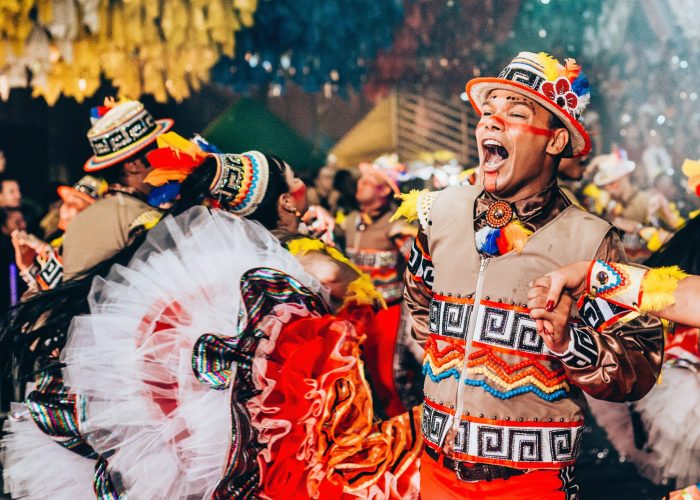
Europe, a continent rich in history and diverse cultures, boasts a vibrant tapestry of religious festivals, each carrying unique traditions and symbolism. These celebrations, often deeply rooted in ancient practices and interwoven with Christian beliefs, continue to shape European identity and community life. From the joyous exuberance of Carnival to the solemn reflection of Easter and the heartwarming traditions of Christmas, these festivals offer a glimpse into the heart of European society.
Easter Celebrations Across Europe
Easter, commemorating the resurrection of Jesus Christ, is celebrated with varying traditions across Europe. In Eastern Orthodox countries, Easter celebrations often feature elaborate church services and the preparation of traditional foods like Paska (a sweet bread) and painted eggs. The symbolism of the egg represents new life and rebirth, mirroring the central theme of Easter. In Western Europe, Easter traditions often involve egg hunts for children, hot cross buns, and participation in church services.
The date of Easter varies each year, following the lunar calendar, leading to slightly different celebratory periods across the continent. Many countries maintain unique local customs alongside the broader Christian observances. For example, in some regions, bonfires are lit, symbolizing the triumph of light over darkness.
Christmas Traditions Across Europe, Top Religious Festivals Around the World
Christmas celebrations in Europe are marked by a blend of religious and secular traditions, reflecting the continent’s diverse cultural heritage. The nativity scene, depicting the birth of Jesus, is a common feature across many European countries, symbolizing the central religious message of Christmas. However, the specific traditions vary significantly. In Germany, elaborate Christmas markets offering handcrafted goods and festive treats are popular.
In Scandinavia, the Yule Goat, a traditional figure, is often displayed, representing prosperity and good fortune. In many countries, the exchange of gifts, decorating Christmas trees, and the sharing of festive meals are central to the celebrations. The emphasis on family gatherings and the spirit of goodwill underscores the shared cultural essence of Christmas throughout Europe.
Carnival Celebrations in European Cities
Carnival, a period of revelry and celebration preceding Lent, takes on unique forms in different European cities. Venice’s Carnival is famous for its elaborate masks and costumes, creating an atmosphere of mystery and anonymity. The historical context lies in the Venetian Republic’s tradition of masking, allowing people to transcend social hierarchies during this festive period. While Venice’s Carnival focuses on elegance and artistry, other cities, such as Cologne and Nice, feature vibrant parades and street festivities with colorful floats and music.
These events often incorporate local folklore and traditions, highlighting the regional variations within the broader Carnival celebration. Note that while Rio de Janeiro is famous for its Carnival, it is located in South America, not Europe.
Similarities and Differences in European Christmas Traditions
The importance of family gatherings and the sharing of festive meals are common threads connecting Christmas celebrations across Europe. However, significant differences exist in the specific traditions observed.
- Similarities: The exchange of gifts, decorating Christmas trees (though the style and decorations may vary), and the prominence of religious symbolism (e.g., nativity scenes) are widespread across Europe.
- Differences: Specific foods consumed during Christmas vary significantly from country to country (e.g., roast goose in Germany, Yule logs in France). The extent of religious observance also differs, with some countries maintaining a strong emphasis on church services, while others focus more on secular celebrations. The timing and duration of celebrations also vary slightly across regions.
Luxury Travel Experiences Related to Religious Festivals
Experiencing the world’s most vibrant religious festivals can be elevated to an unparalleled level of luxury and exclusivity. Imagine witnessing ancient traditions unfold while enjoying bespoke services and breathtaking accommodations. This section explores curated travel itineraries designed to immerse you in the heart of these celebrations, offering a blend of cultural immersion and refined indulgence.
Diwali in India: A Luxurious Itinerary
This itinerary focuses on experiencing the Festival of Lights in India with utmost comfort and exclusivity. The five-day journey blends cultural immersion with luxury accommodations and private experiences. Days are filled with witnessing stunning Diwali celebrations, engaging in exclusive cultural experiences, and enjoying opulent relaxation.Day 1: Arrival in Jaipur and check-in to The Oberoi Rajvilas, a palace hotel renowned for its exquisite architecture and impeccable service.
Enjoy a private dinner featuring traditional Rajasthani cuisine.Day 2: Explore the Amber Fort and enjoy a private elephant ride. In the evening, witness a traditional Rajasthani dance performance.Day 3: Fly to Varanasi, the spiritual heart of India, and check into a luxury riverfront hotel. Witness the Ganga Aarti ceremony, a mesmerizing evening ritual on the Ganges River.Day 4: Explore the ancient ghats of Varanasi and enjoy a private boat ride on the Ganges.
In the evening, participate in Diwali celebrations with local families.Day 5: Departure from Varanasi.
Carnival in Rio de Janeiro: A Premium Travel Package
This premium travel package offers an unforgettable experience of Rio’s Carnival, combining luxurious accommodations, private events, and exclusive access. The package includes high-end travel accessories such as a bespoke travel bag, personalized itinerary, and VIP access to all Carnival events.The package includes:
- Seven nights at the Belmond Copacabana Palace, a legendary hotel offering stunning ocean views.
- Private Samba school rehearsals and parade access with prime viewing locations.
- Private yacht excursions to secluded beaches and islands.
- Exclusive access to VIP Carnival parties and events.
- A curated selection of high-end travel accessories, including a handcrafted leather travel bag, a luxury watch, and a personalized travel journal.
A Luxury Train Journey Through Europe’s Christmas Markets
Experience the magic of Europe’s Christmas markets from the comfort of a luxurious train. This journey takes you through charming towns and bustling cities, allowing you to soak in the festive atmosphere at your own pace. The journey includes exclusive access to the markets, private tours of historical sites, and gourmet meals onboard the train.The itinerary features:
- A meticulously planned journey aboard a luxurious train, complete with opulent suites, gourmet dining, and attentive service.
- Visits to renowned Christmas markets in cities such as Vienna, Prague, and Nuremberg.
- Private guided tours of historical sites and landmarks in each city.
- Exclusive access to private events and festive celebrations.
- Opportunities to sample local delicacies and artisanal crafts.
Exclusive Travel Experiences Linked to Religious Festivals
Several companies specialize in crafting bespoke luxury travel experiences around religious festivals. These companies offer premium travel guides, personalized itineraries, and access to exclusive events. High-end travel accessories such as personalized luggage, luxury travel journals, and high-quality photography equipment enhance the overall travel experience. These curated journeys often include private transportation, VIP access to events, and bespoke services tailored to individual preferences, transforming a pilgrimage or cultural immersion into a truly unforgettable and luxurious adventure.
Private Island Vacations, High-End Travel Accessories, and Exclusive Travel Experiences: Top Religious Festivals Around The World

Attending major religious festivals can be a deeply enriching and spiritually moving experience. However, the intensity and often bustling nature of these events can leave one yearning for tranquility and rejuvenation. The combination of spiritual exploration and luxurious relaxation offers a uniquely fulfilling travel experience. This section explores how private island getaways, high-end travel accessories, and exclusive travel arrangements can elevate the overall journey.
The allure of a private island escape after a significant religious festival is undeniable. It offers a sanctuary of peace and solitude, a stark contrast to the often crowded and vibrant atmosphere of the festival. Imagine exchanging the throngs of pilgrims for the gentle lapping of waves against pristine sands, the chanting of prayers for the soothing sounds of nature.
This transition allows for profound reflection on the spiritual journey undertaken, fostering a deeper appreciation for the experience and a sense of inner peace.
Private Island Retreats for Post-Festival Relaxation
Private island vacations provide unparalleled seclusion and luxury. Imagine waking to breathtaking sunrises over turquoise waters, spending days snorkeling in vibrant coral reefs, or simply unwinding with a good book under the shade of swaying palm trees. Several destinations offer this unique opportunity for post-festival rejuvenation. The Maldives, with its overwater bungalows and pristine beaches, is a popular choice.
Similarly, the secluded islands of Fiji or the private resorts of the Seychelles provide luxurious escapes tailored to relaxation and rejuvenation. These destinations offer a range of amenities, from world-class spas to personalized butler service, ensuring a truly unforgettable experience.
High-End Travel Accessories for Enhanced Festival Experiences
The right accessories can significantly enhance the comfort and enjoyment of attending religious festivals. Lightweight, breathable clothing made from natural fibers like linen or cotton is crucial, especially in warmer climates. Comfortable walking shoes are essential for navigating potentially crowded areas and uneven terrain. A high-quality, lightweight travel backpack allows for hands-free exploration while carrying essentials like water bottles, sunscreen, and a small first-aid kit.
For capturing memories, a versatile digital camera with excellent zoom capabilities and a portable charger is invaluable. A portable power bank ensures that you can keep your devices charged throughout the day, even in areas with limited access to electricity. Finally, noise-canceling headphones can offer a much-needed respite from the hustle and bustle.
Exclusive Travel Experiences for Unforgettable Festival Participation
Booking exclusive travel experiences can transform a religious festival from a simply enjoyable event into a truly unforgettable one. Private tours offer personalized attention and deeper insights into the cultural and historical significance of the festival. These tours often include access to areas restricted to the general public, providing unique perspectives and opportunities for interaction with local communities.
VIP access to events and ceremonies ensures prime viewing positions and avoids the potential crowds and jostling for space. Exclusive accommodations near the festival grounds, such as luxury hotels or private villas, offer comfort and convenience, allowing for rest and relaxation between events. Access to private transportation, such as chauffeured cars or private jets, further elevates the experience, reducing travel stress and maximizing time spent at the festival itself.
Table of Private Island Destinations, High-End Accessories, and Exclusive Travel Experiences
| Private Island Destinations | High-End Travel Accessories | Exclusive Travel Experiences |
|---|---|---|
| Maldives (Overwater bungalows) | Lightweight linen clothing | Private tour of a religious site with a local expert |
| Fiji (Private villas) | High-quality DSLR camera with telephoto lens | VIP access to a major festival ceremony |
| Seychelles (Luxury resorts) | Comfortable walking shoes | Private jet transfer to and from the festival location |
| Bora Bora (Overwater bungalows) | Portable power bank | Exclusive accommodation near the festival grounds |
| Palawan, Philippines (Private villas) | Noise-canceling headphones | Private chef and butler service throughout the trip |
Exploring the world’s top religious festivals reveals a vibrant tapestry of human experience, faith, and cultural expression. From the spiritual introspection of Diwali to the exuberant celebrations of Carnival, these events demonstrate the power of shared belief and communal participation. Understanding these diverse traditions fosters appreciation for the richness and complexity of global cultures, enriching our understanding of the human spirit and its enduring connection to the sacred.
The experiences, whether luxurious or simple, offer unique opportunities for personal reflection and cross-cultural understanding.
Query Resolution
What is the difference between religious and secular festivals?
Religious festivals are centered around religious beliefs and practices, while secular festivals celebrate cultural or historical events without a specific religious focus.
How can I respectfully participate in a religious festival I’m unfamiliar with?
Research the festival beforehand to understand its customs and traditions. Dress modestly, be mindful of local customs, and observe the celebrations with respect.
Are there safety concerns to consider when attending religious festivals?
Large gatherings can present safety risks. Be aware of your surroundings, avoid crowded areas if uncomfortable, and follow any safety guidelines provided by local authorities.
What are some ethical considerations for travel related to religious festivals?
Respect local customs and traditions, avoid exploitative practices, support local businesses, and minimize your environmental impact.

